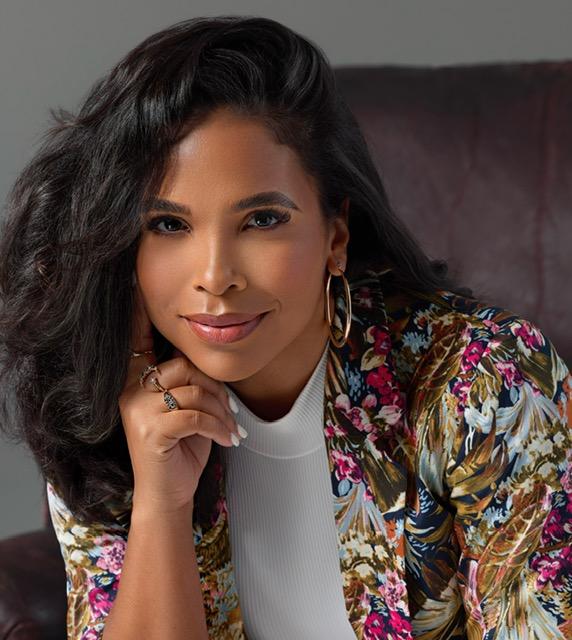As a member of the merged Screen Actors Guild and the American Federation of Television and Radio Artists for more than 15 years, Atlanta-based Maya Dunbar realized a while ago that she wanted to see some change in an organization that means so much to her. After thinking it through, she realized that she could be that change. Dunbar is announcing her candidacy as president of the national organization.
Originally from Kent, Ohio, Dunbar moved to Los Angeles in her early 20s. She didn’t know anyone there and had never even been in the area. At first, she landed background and stand-in work, learning the ropes before inching her way to more prominent gigs. By 2006, she had received her SAG card. “The goal of anyone who wants to remotely be taken seriously and make a living is joining the union,” she says.
The actress has appeared in television series’ such as Banshee, Harry’s Law, The Mentalist and Southland, as well as independent films. One of her biggest roles was in Ava DuVernay’s 2012 Middle of Nowhere, alongside David Oyelowo and Lorraine Toussaint. Dunbar also has been a writer for Bluff City Law and has penned several pilots. She is married to Rockmond Dunbar, whose 30-year career includes stints in series’ such as Prison Break, The Path and The Game. The couple moved to Atlanta in 2021, wanting a safe space but also somewhere they could remain part of the industry.
Within the last six months, Dunbar decided to run for office. A longtime Screen Actors Guild member, she’s been a bit unhappy with the direction the organization has been taking. “I knew I was going to step up and become active in our union, but I realized — instead of looking for someone to represent me and all the members — why not me?” she says.
“I think there is so much potential in what SAG and what all unions are. We are labor unions to ensure workers have a safe and equal working field and that people are treated with respect. I don’t necessarily see that when I look at our leadership. I don’t see the diversity and equity that can be there. I want to be the change I want to see.”
If elected, she says she would be the first Black president, which would be a monumental achievement. She has seen some gains over the years toward a more diverse membership — but not enough. “When the bar is set low, then I think things are heralded as being more advanced than they may be. Any growth in areas where people are underrepresented is always a good thing. It has gotten better, but I have not seen the representation [where] it should be. It should be a little quicker.”
Dunbar feels Covid-19 changed the industry in some positive and some not-so-positive ways. “Things started to come out in the wash. I realized I had been making a grave mistake for the last 15 or so years, walking around with this assumption that the union was doing something for us, but all members are a part of this union, and we need to be active in it.”
SAG-AFTRA has a membership of more than 160,000 nationwide — including actors, broadcast journalists, recording and voice-over artists — and Dunbar wants to see more engagement and have members run the union and have a microphone.
According to Dunbar, some senior members of SAG-AFTRA were kicked off the organization’s health care plan once they turned 65. The late Emmy award-winning actor and former SAG president Ed Asner filed a class action lawsuit against the organization in 2020; it was resolved earlier this year. She is very upset about those circumstances. “It was a devastating blow to them, and every year more and more are facing this uncertainty at a time when they need it the most,” she says. “How many of our members are working at 65, especially women?”

The issue of artificial intelligence also is enormous now. She feels that artists can be taken completely out of the equation, being asked to sign contracts stating that their likeness can be re-created on screen and their voices replicated. “I am in the Writers Guild of America, too, and that is a huge concern and one reason we are striking in that arena. It is a catch-22. If used properly, it is good. It can help exemplify your talent, and it can speed up the pace at which we do things. But these big corporations are motivated to make as much money as possible with paying artists as little as possible. I want to find a resolution.”
Dunbar feels it’s getting harder for members to stay in the organization. For artists who aren’t making money, sometimes even paying annual dues can be challenging. “It’s getting increasingly difficult in the arts to make a living — period. You have people who have to make a decision about following their dreams or paying their bills. That is a tragedy, especially with inflation and life in general.”
SAG-AFTRA officers are elected every two years, and the next election will be in October. Dunbar will spend the next few months getting out, hitting the pavement, campaigning, talking to fellow members and selling her mission. “I am old-school and not a name, but I want to awaken the membership and let them know we have to fight for the union now, while we still have one.”
::
Jim Farmer covers theater and film for ArtsATL. A graduate of the University of Georgia, he has written about the arts for 30-plus years. Jim is the festival director of Out on Film, Atlanta’s LGBTQ film festival. He lives in Avondale Estates with his husband, Craig, and dog, Douglas.

